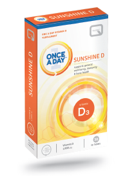Beat Psoriasis In Five Easy Steps


It’s a condition that affects around 1.8million people in the UK alone, yet psoriasis is a little talked about problem, and often misunderstood. Model Cara Delevigne, singers LeAnne Rimes and Britney Spears, and presenter Stacy London all suffer from the condition in varying degrees. Information given on the Psoriasis Association website suggests that causes of a psoriasis flare up can range from stress or anxiety, injury to skin, hormonal changes, or certain infections or medications. We consulted a panel of nutritionists to find out how sufferers can deal with the flare ups which often leave them covered in dry, flaky, irritated skin.
Sunny side up
Vitamin D, often called the ‘sunshine vitamin’, has an enormous influence on our body. Not only is it vital for bone health as well as obesity and diabetes, but it can also help with psoriasis. “Vitamin D can change the way cells grow. As those who suffer from Psoriasis tend to produce more skin cells, it can slow this process down and cause the plaques to become less scaly and thinner,” says Shona Wilkinson, Nutritionist at SuperfoodUK.com the online shopping destination for health & wellbeing.
So what can we do? “It can be difficult to get enough sunlight to stimulate vitamin D synthesis in this country – even in the summer! The ideal first step is to get your vitamin D level tested to see how much yours needs to increase, if at all. In most cases, your doctor will do this for you. If you’re deficient (under 75 nmol/L) or ‘insufficient’ (under 100 nmol/L) then taking a supplement can be the best way to get your level up. Try new Once A Day Sunshine D from Quest Vitamins(www.qnutrapharma.com, from £2.95) a high-strength vitamin D chewable tablet,” recommends Cassandra Barns, Nutritionist.
Think: fish!


To relieve your skin from itchiness and discomfort keep the skin moist and nourished from the outside. However, emollient creams that are sometimes recommended by doctors and pharmacists, rarely provide long-term relief. Cassandra explains, “They can even irritate already inflamed skin, as very often they contain chemicals, such as chlorocresol and cetearyl alcohol. Instead, try natural products, such as Hydrating Facial Serum from What Skin Needs Skin Balm (www.whatskinneeds.co.uk, £17.99), which contains a blend of natural ingredients including Plantolin, an extract from an Australian indigenous plant. This powerful ingredient along natural essential oils can help to manage skin conditions by reducing inflammation and oxidative damage. The formula as a whole is designed to reduce irritation, soothe and repair dry and damaged skin”.
Avoid junk foods
We all know fast foods are bad for us. But why does it flare up Psoriasis? “Junk foods very often come with ingredients that may aggravate skin problems and worsen inflammation – including additives, sugar and excess salt. They are also usually high in quickly digested and absorbed carbohydrates (think white bread, pastries and crisps), which can upset the balance of natural flora in our gut as well as blood sugar and hormone balance, all of which can tie in with skin problems,” explains Cassandra.
Stress factor
Stress and Psoriasis seem to go together – stress can not only make Psoriasis worse but Psoriasis can make you stressed. “When irritated skin flares up in visible places, people tend to worry about their appearance. That can affect personal and work life, causing anxiety and tension” explains Barns.
How to reduce your stress levels? Well a long soak in a bath of Oat Soak by Skin Shop (£9.95 for ten sachets) is a good place to start. Oats are widely recognised as being a highly effective 100% natural product for soothing itchy skin, calming down inflammation and restoring smoothness and elasticity to dry skin, and a relaxing bath can help to ease away the tensions of the day.
Dr Glenville also suggests you eat yourself happy! “We need to make sure that our levels of serotonin (the ‘feel good’ hormone) remain high. A simple change of diet can work wonders! The body makes serotonin from tryptophan, which occurs naturally in foods such as dairy products, fish, bananas, dried dates, soya, almonds and peanuts. The manufacture of serotonin depends on how much tryptophan is transported into your brain. Combining the foods mentioned above with unrefined carbohydrates, such as brown rice, wholemeal bread or oats, helps the body to release insulin to help tryptophan uptake to the brain. A good example would be to kick start your day with eggs and wholemeal toast for breakfast.”





